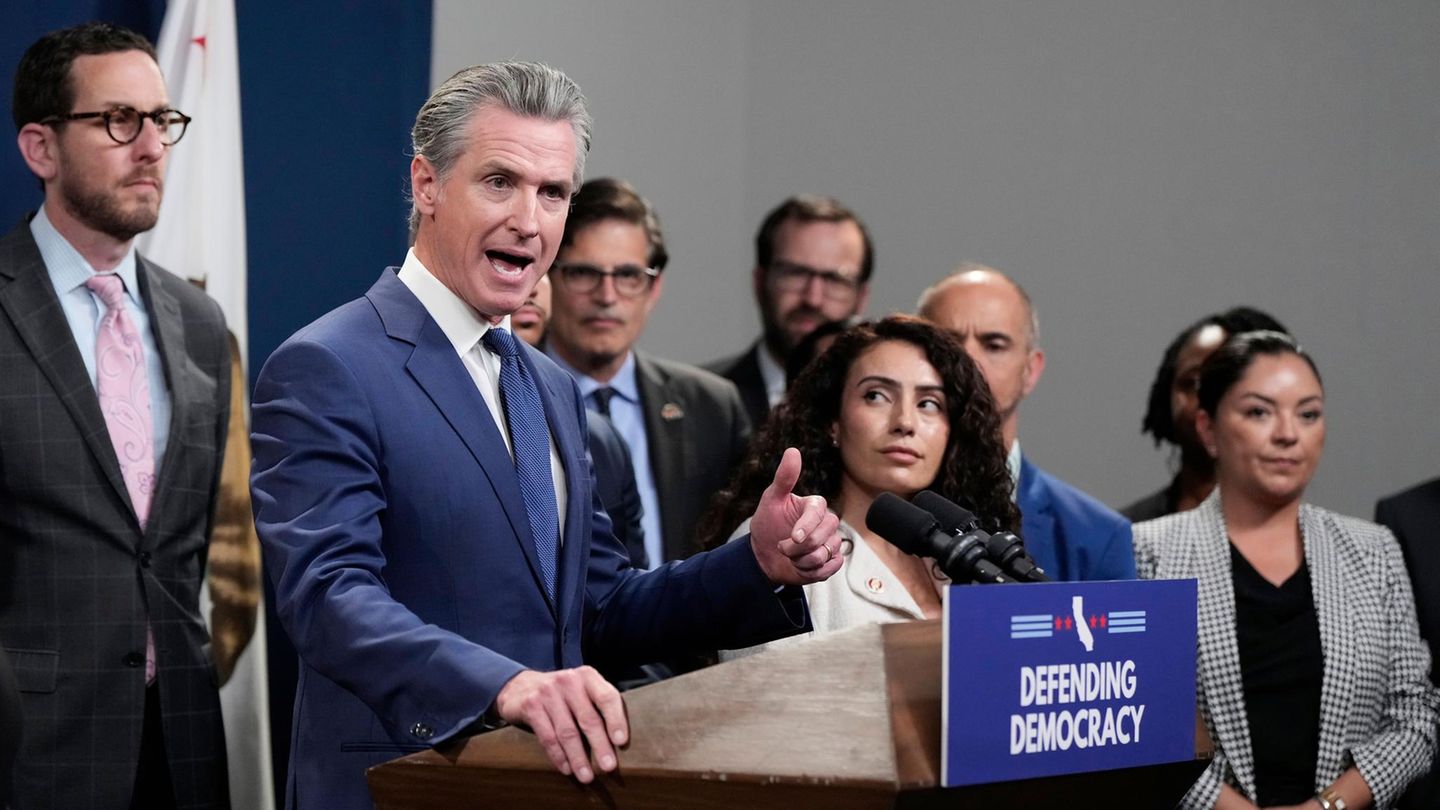The United States economy seems to dodge recessive forecasts showing a 3% growth in the second quarter of the yearabove the forecasts of consensus, which anticipated an expansion of 2.5%, after falling 0.5% in the first quarter. According to official data, the increase in GDP, in the second quarter, is due to Design of imports and an increase in consumer spending, together with a retraction of investment and exports. While the Personal Consumer Expenses Index (PCE) increased 2.1% and excluding food and energy prices, did so by 2.5%. This is the first preliminary figures of GDP that reflect The impact that Trump administration tariffs have on the US economy.
Much has been discussed and continues to discuss whether the economy is headed to a recession. Even some Wall Street analysts, resorting to traditional economic and financial indicators have been warning the parallels of the current situation with the crisis of the Puntocom bubble, anticipating a probable correction. In this line, the recent warning of the analyst is framed Michael Snyder which points out that The collapse of Las Vegas economy is another canary, in allusion to birds used in mines to detect gas escapes, that the current situation keeps similarities with the 2008/09 crisis.
Snyder argues that if you want to have a clear idea of where the US economy is directed, it is enough to observe what happens in the emblematic city of sin: In times of bonanza, the hotel occupancy is very high and a lot of money is spent on the casinos, but in times of crisis, fewer people go to Las Vegas and those who are going to be more stingy (A living example was the great recession). After the world financial crisis, revenue from gambling in Las Vegas collapsed. Remember an ABC News article published in 2009: “For almost all, and especially for the Germans, Las Vegas seemed recession proof. But now, since the summer of 2008, revenues from gambling have fallen more than 10%, after having fallen up to 25% in the months immediately after the bankruptcy of Lehman Brothers.
“Of course, with time things changed and Las Vegas prospered for many years. But now another huge change is taking place. A new recession has begun, with the hotel occupancy, the number of visitors and the expense in descent ”, Point out. “Industry data point to several key reasons behind this change, including the increase in costs, the least number of international travelers and broader economic uncertainties.”
The economy in the wrong direction?
Why does this happen? Snyder argues that despite “All the nonsense that are heard in the CNBC, the truth is that the US economy is quickly going in the wrong direction”. As a result, occupation rates in Las Vegas hotels are falling dramatically: “Las Vegas hotels are registering this summer some of the most pronounced year -on -year falls among the main US marketsas the weakness of international visitors and economic uncertainty, they pass invoice. ”
The preliminary data of Str indicates that The occupation of Las Vegas fell by 14.9% in June, which, to update, would mark the deepest monthly fall in the city so far this year. The deterioration continued in July, and the week that ended on July 5 showed that Las Vegas had the worst falls among the 25 main US markets: The occupation fell 16.8%, to 66.7%, and the revenue per available room collapsed 28.7%, Au $ 102.75, according to Str. On the other hand, because things are so slow, Snyder points out that workers are saying goodbye and the unemployment rate in the Las Vegas area increased a lot last month to 5.8%, in the midst of a fall in tourism this year.
Another indicator: the real estate market
Snyder emphasizes another parallel with the 2008 and 2009 situation: The US real estate market has just experienced its slowest spring season in more than twelve years.
And, according to real estate agents, the situation does not improve despite the price reduction. Apparently, they explain, months of rumors about artificial intelligence (AI) that eliminates jobs and tariffs that sink the economy are feeding the indecision of buyers. Therefore, the price solves everything, but the price does not solve uncertainty.
It is expected that for 2025 housing sales in the US reach the lowest level in 30 yearsand experts warn that the fall could be aggravated to become a total collapse. Only four million transactions in the US are expected, this year, according to new data from Realtor.com, which would mark the lowest level since 1995, according to the National Association of Real Estate Agents. “Yes, housing sales in 2025 will even be lower than in 2008 and 2009”, Snyder points out.
And to top it off, “inflation stress”
So why the CNBC commentators continue to insist that the economy is strong? Snyder’s, have they become completely crazy?: “I just don’t understand why they can’t see parallels with 2008 and 2009, but one thing we didn’t have in 2008 and 2009 and with which we deal today is a galloping inflation. It sets as an example that the average list price of a 3 -year -old used vehicle has increased US $ 9,476 in the last six years, which according to Jamieou’s Detroit Free Press, AU $ S32.635. This is one of the main reasons why today so many Americans drive vehicles 20 years ago, they point out. Meanwhile, meat prices continue to shoot: in June they exceeded the entire category of home food in more than 12%.
In relation to this point, it is worth remembering that the Americans of these last generations are not accustomed to dealing with inflation, an innate ability that any Argentine brings almost from the crib. Therefore, Snyder warns that things are so bad that 83% of Americans are dealing with “inflation stress.” He quotes a recent Lifstance Health survey that reveals that the “Stress-inflation” affects most Americans: 83% report financial stress due to inflation, mass dismissals, increased life cost and fear of a recession, while millennials and gene generation report the most significant impacts on mental health. “Unfortunately, the long -term trends that have brought us to this point will not disappear in the short term,” he says. We will see if the Canarian of the city of sin is right to Snyder.
Source: Ambito




